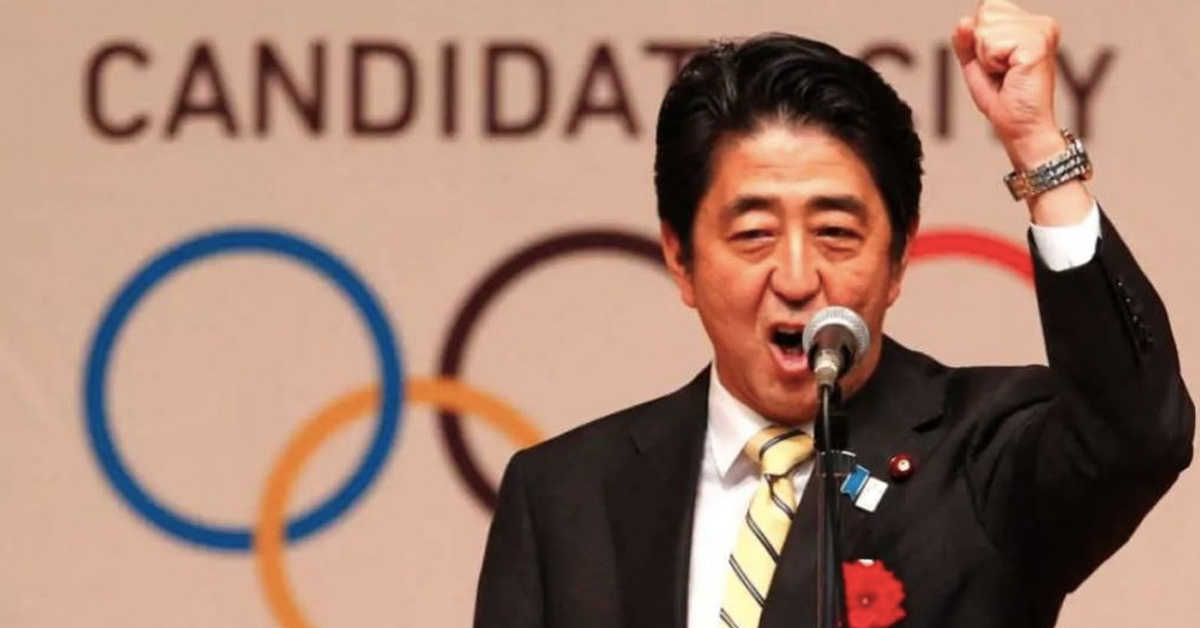Featured
Japan Prime Minister Shinzo Abe resigns - What happens to Tokyo Olympics?

Japanese Prime Minister Shinzo Abe resigned on Friday, ending his second premiership since 2012 and an era of policy stability. Abe cited his ill health as the reason of him stepping down thrusting his country, amid a global pandemic, into a new period of political uncertainty after a record-setting tenure that provided unaccustomed stability at the top. He has been the biggest supporter of the Olympic Games in 2020 and his stepping down puts a lot of questions on the future of the summer games.
Abe has long suffered from ulcerative colitis, a chronic intestinal disease, and many worried that the stress of the pandemic combined with his health problems had finally caught up with him. It was also a flashback to 2007, when Abe cited his health for an abrupt resignation.
Tokyo was awarded hosting rights of the Olympics at the 125th International Olympic Committee (IOC) Session in 2013. Now it seems, the deferred Tokyo Games will take place under new Prime Minister next year. However, any possible shift in Abe's strong push for the Olympics could derail the pickup in real-estate prices and construction and over the past few years, dampening industrial diesel consumption to some extent/
Under his tenure, Japan had been making aggressive move to collect enough coronavirus vaccine to inoculate its population fatser. It was a push with the government hoping will instil confidence to host the Games next year. In Abe's words, it would have been a "sign of humanity's triumph over the novel coronavirus,"
Also read: Japan Virus expert not convinced Olympics can be held in 2021
Chief Cabinet Secretary Yoshihide Suga, the top government spokesman, said Japan was working with Olympic organisers on how to go ahead with the Games, tying the effort to the need to secure a vaccine.
The various companies “will probably be able to produce a vaccine between the end of this year and next March,” Suga told Reuters in an interview this week. “There are a lot of considerations, but we want to hold the Olympics at all costs.”
Some critics contend that Japan's rush to secure supplies is driven largely by a political desire to show the world it is fully committed to hosting the Games. "The plan is, hope for a miracle and then capitalise on that miracle," said Michael Cucek, a political science professor at Temple University Japan. "But the timeframe for that is getting narrower and narrower." Health ministry and Cabinet Office officials did not respond to queries about whether Japan's drive to secure coronavirus vaccines was connected to the Olympics.
Japan has recorded more than 63,000 cases of the coronavirus, and has struggled to get the pandemic under control despite being among the very first countries to be hit by the virus. Throughout the summer, as the rest of East Asia has moved to control the pace of infections, Japan's outbreak has spiked, with more than half of all cases being recorded since July.
Many people have expressed dissatisfaction with the government's handling of the virus, from a slow initial response and refusal to acknowledge the crisis, which many saw as linked to a desire to avoid canceling or postponing the Tokyo 2020 Olympics (since pushed to next year), to the ongoing failure to take sufficient action to rein in cases.
Japanese officials have discussed putting on a "simplified" Games, originally expected to attract 600,000 visitors. But the event would still involve some 11,000 athletes from around the world. Given the size of the events and people coming from all over the world, holding the Olympics require "mass quantities of an effective vaccine," said Kenji Shibuya, director of the Institute of Population Health at King’s College, London.
Staging an Olympics in a pandemic will be a huge logistical challenge, as thousands of athletes around the world will have to train and travel to events and many more thousands of fans will have to be accommodated at a time when many countries may still be in lockdown. Japan still has a travel ban in place covering more than 140 countries. Even with a viable vaccine, the additional challenge of immunising athletes and visitors before or after landing in Japan will be enormous.
A "very, very essential factor" for the Olympic hosts will be when an effective vaccine will be ready and how it will be distributed, Tokyo Governor Yuriko Koike told Reuters on Tuesday. "We will do our best to prevent coronavirus infections here in Japan and also to welcome the athletes from all over the world."
With Abe resigning, the public sentiment might work as the catalyst for stalling the Olympics, which would be decided by the next prime minister of the country.
Also read: Majority of Japanese firms oppose Olympics next year

